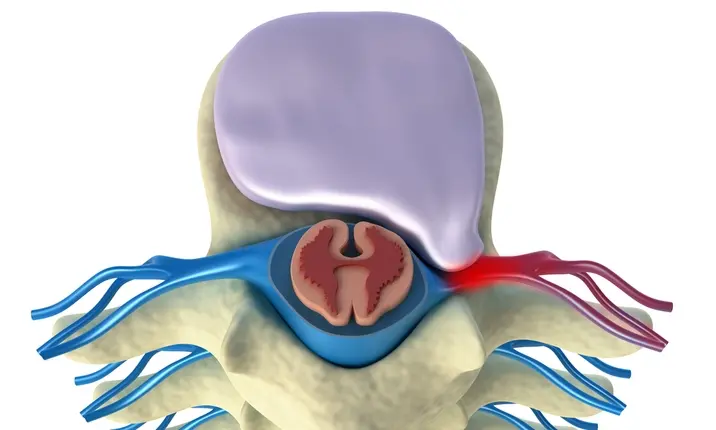When most people think about injuries to the spine, they probably think about injuries to the lower back. This is not wrong, because most spine injuries are lower back injuries. However, many people may not be aware that spinal injuries in the neck are also fairly common.
A slipped disc, also known as herniated disc, is one of the most common lower back spinal injuries. Similarly, a slipped disc may occur in the neck. The 'disc' is actually fibrous tissue with a soft centre that acts as a shock absorber between the vertebrae. A slipped disc happens when the disc ruptures and the soft, jelly-like material within the disc leaks out and begins impinging on the spinal nerves.
Slipped discs in the neck are also known as cervical herniated discs, and they are usually caused by long-term degeneration due to wear and tear. As we age, the discs begin to lose the fluid that keeps them flexible, making them more likely to tear. The situation can be made worse due to poor posture, and those who spend long hours in front of the computer are especially vulnerable. Herniated discs in the neck can also happen due to injuries, such as falls or impacts to the head or neck.
There is relatively little space in the neck vertebrae for the nerves, which means that even mild herniation of the neck discs can cause significant pain. The most common symptom of a slipped disc in the neck is pain and numbness in the shoulders and arms, as a herniated cervical disc will usually pinch the nerves connected to the arms. There is often also a tingling sensation accompanying the pain and numbness, and weakness in the arms. The symptoms may result in clumsiness when performing small hand movements such as writing, using chopsticks, and buttoning clothing.
Treatment for herniated neck discs usually consist of either removing the segment of the disc that is ruptured or removing the entire disc and replacing it with a bone graft that fuses the 2 vertebrae, secured with metal plates, rods and screws. Due to the lack of space in the neck vertebrae, spinal surgery for cervical slipped discs is a delicate procedure where the outcome is largely affected by the experience of the surgeon.
Speak to an orthopaedic specialist if you've concerns about a spinal neck injury.













